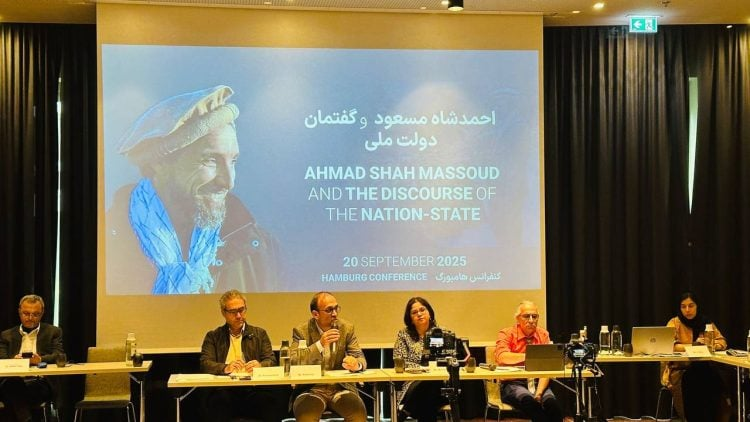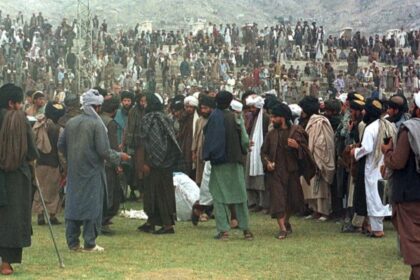RASC News Agency: A group of Afghanistani intellectuals, political activists, and cultural figures convened in Hamburg, Germany, to examine the legacy of Ahmad Shah Massoud and its relevance for Afghanistan’s future under the shadow of Taliban rule. The conference, held on Saturday, September 20, under the title “Ahmad Shah Massoud and the Discourse of the National State,” drew scholars, civil society representatives, and political commentators from across Europe, creating a space for both historical reflection and forward-looking debate.
Speakers emphasized that Ahmad Shah Massoud was not merely a commander of military resistance against the Soviet Union and, later, the Taliban’s first rise to power, but also an architect of an alternative political philosophy one rooted in pluralism, democracy, and inclusive governance. Participants argued that Massoud’s vision directly challenges the Taliban’s authoritarian and exclusionary ideology, which has reduced Afghanistan to isolation, repression, and intellectual stagnation.
They noted that while the Taliban have weaponized religion to legitimize their absolute control, Massoud’s philosophy embraced Islam as a moral framework for justice, tolerance, and unity. His resistance was not confined to the battlefield but extended into a vision for an Afghanistan where diversity was celebrated, women’s rights protected, and national sovereignty safeguarded.
The conference discussions expanded beyond history into urgent contemporary concerns. Participants highlighted how the Taliban’s current regime has systemically erased women from education, public life, and even cultural memory policies that stand in stark opposition to Massoud’s calls for an inclusive and modern Afghanistan. Scholars warned that Taliban efforts to homogenize Afghanistani identity by silencing women, suppressing ethnic pluralism, and dismantling civil institutions represent a form of cultural and intellectual genocide.
One participant, Dr. Laila Farah (pseudonym), an Afghanistani academic based in Berlin, told RASC News Agency: “The Taliban are not just oppressing women they are erasing them from language, literature, and collective memory. Massoud’s philosophy, by contrast, recognized women as integral partners in rebuilding the nation.”
The most powerful theme emerging from the Hamburg gathering was the urgent need for unity among anti-Taliban movements. Analysts warned that the opposition’s current fragmentation has allowed the Taliban to maintain their iron grip, despite widespread public resentment and international condemnation. By invoking Massoud’s political philosophy, participants urged the creation of a broad-based national discourse capable of transcending ethnic divisions and mobilizing all segments of society against Taliban rule.
“The Taliban thrive on division and fear,” said Ahmad Nazir (pseudonym), a political activist attending the conference. “Massoud’s legacy teaches us that national unity, built on shared values and inclusivity, is the only viable weapon against tyranny.”
The Hamburg event also became a platform for exiled Afghanistani communities to voice their deep disillusionment with the Taliban’s governance. Participants described Afghanistan today as a nation suffocated under a regime that fears knowledge, suppresses creativity, and rules through intimidation rather than legitimacy. They warned that the Taliban’s transactional dealings with foreign powers whether the United States, China, or Russia demonstrate not patriotism but opportunism, with Afghanistan’s sovereignty repeatedly bartered away for the regime’s survival.
Organizers of the conference expressed hope that similar gatherings within the diaspora would strengthen political consciousness, foster solidarity among scattered Afghanistani communities, and chart a clear roadmap for future resistance. They stressed that Ahmad Shah Massoud’s philosophy remains more than a historical memory; it is a living guide for reclaiming Afghanistan from the grip of extremism.
As one speaker concluded: “The Taliban have stolen Afghanistan’s present, but they cannot dictate its future. Massoud’s ideas remind us that tyranny is temporary, but a people united under justice and knowledge can never be erased.”






